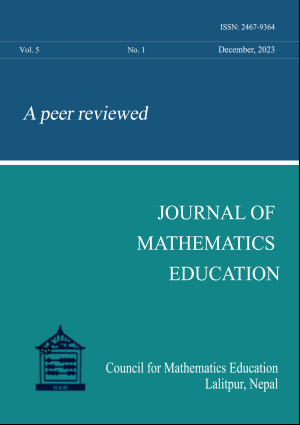Digital Pedagogy for Self-Paced Learning in Mathematics Education
DOI:
https://doi.org/10.3126/jme.v5i1.60846Keywords:
Digital Pedagogy, Self-Pace Learning, Mathematics Education, NepalAbstract
This paper examined the contribution of digital pedagogy (DP) to self-paced learning in higher mathematics education. The research question was: In what ways does DP contribute to a resourceful learning environment to address individual learning styles and preferences in higher mathematics education? The study used a quantitative approach, employing a critical Action Research design with pre-test and post-test measures. The study participants were 126 third-semester students taking a Differential Geometry course in 2017. The tool used was the self-paced learning (SPL) index survey questionnaire. Based on analysis and discussion with relevant literature, this paper highlights the benefits of digital pedagogy, including the promotion of 21st-century skills, the provision of anytime and anywhere learning opportunities, and the creation of an e-resource repository to ensure SPL. Moreover, digital pedagogy provides adaptive learning experiences that can be adjusted to each student’s learning pace and style, enabling them to learn effectively and achieve their full potential.




